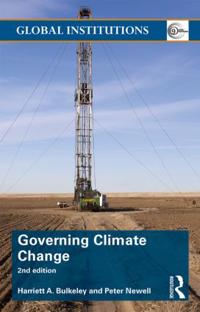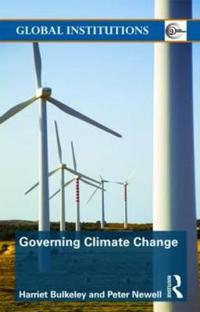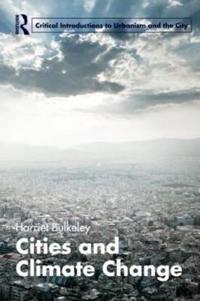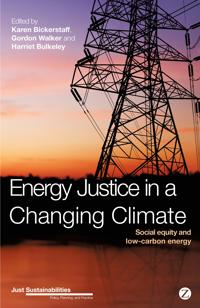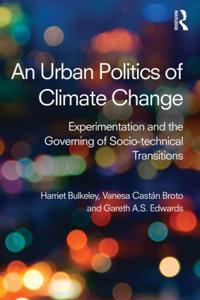Governing Climate Change (Pocket)
avHarriet A. Bulkeley, Peter Newell, Harriet A. Bulkeley
ISBN: 9781138795716 - UTGIVEN: 2015-06Governing Climate Change, Second Edition, provides a short and accessible introduction to how climate change is governed by an increasingly diverse range of actors, from civil society and market actors to multilateral development banks, donors, and cities. This updated edition also includes: * up-to[...]
Governing Climate Change (Storpocket)
avPeter Newell, Harriet A. Bulkeley
ISBN: 9780415467698 - UTGIVEN: 201002Governing Climate Change provides a short and accessible introduction to how climate change is governed by an increasingly diverse range of actors, from civil society and market actors to multilateral development banks, donors and cities. The issue of global climate change has risen to the top of th[...]
Cities and Climate Change (Häftad)
avHarriet A. Bulkeley
ISBN: 9780415597050 - UTGIVEN: 201212Climate change is one of the most significant global challenges facing the world today. It is also a critical issue for the world's cities. Now home to over half the world's population, urban areas are significant sources of greenhouse gas emissions and are vulnerable to the impacts of climate chang[...]
Energy Justice in a Changing Climate (Pocket)
avKaren (EDT) Bickerstaff, Gordon (EDT) Walker, Harriet (EDT) Bulkeley
ISBN: 9781780325767 - UTGIVEN: 2013-11Energy justice is one of the most critical, and yet least developed, concepts associated with sustainability. Much has been written about the sustainability of low carbon energy systems and policies - with an emphasis on environmental, economic and geopolitical issues. However, less attention has be[...]
An Urban Politics of Climate Change (Pocket)
avHarriet Bulkeley, Vanesa Castán Broto, Gareth A. S. Edwards
ISBN: 9781138791107 - UTGIVEN: 2014-11The confluence of global climate change, growing levels of energy consumption and rapid urbanization has led the international policy community to regard urban responses to climate change as 'an urgent agenda' (World Bank 2010). The contribution of cities to rising levels of greenhouse gas emissions[...]

